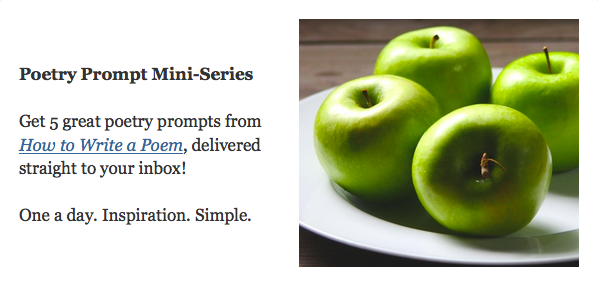We make promises. It’s how we assure others of our trustworthiness, and keeping promises helps cement our character. Maybe the promises guide us, too, as we put our intentions on the table in a clear way.
Promises almost seem a distinct part of our language. Something separate from other types of speech. Stating a promise has a different effect than stating what we think. By saying something as simple as “I will, ” we make a commitment to it and set forth a course of action; whereas simply stating what we think feels more subject to change.
Each and every promise we make has the potential to grow and deepen relationships, or undermine and destroy them. And while we intend to keep our promises when we make them, life tends to have its say in the matter as well. A promise, in the end, is more complex than meets the eye.
Try It: An Oath, A Vow, A Promise
What is the most important promise you’ve made? Who did you make the promise to? What did it mean to you to make such an important promise? Consider the emotions and atmosphere, and write a poem that reflects the moment.
Click to get 5-Prompt Mini-Series
Featured Poem
Thanks to everyone who participated in last week’s poetry prompt. Here is a poem from Andrew we enjoyed:
The floor was thick with autumn’s tears
That covered all the ground
But she was there, and I was young
So I went all unheeding of the sound;
All I remember is a vase, pink as summer
Glowing in the windowsill, and a smile
That shone though age had creased
All that surrounded it.
She was my mother’s mother, and I
Loved her so very much.
We worked together in the yard
To sweep away each bitter shard
Autumn had left to taunt us with.
We talked of many things, I’m sure
That older people must endure
When talking to a child,
But though the day grew dimmer
Her patience did not, and at the last
We’d filled the barrow.
Glowing with happiness, I left her place
And pink, pink vase
A smile across my face.
Because I’d helped her, and she had so very,
Very obviously loved me.
—by Andrew H.
Photo by glasseyes view. Creative Commons via Flickr.
Browse more writing prompts
Browse poetry teaching resources

“How to Write a Poem is a classroom must-have.”
—Callie Feyen, English Teacher, Maryland
- Poetry Prompt: Misunderstood Lion - March 19, 2018
- Animate: Lions & Lambs Poetry Prompt - March 12, 2018
- Poetry Prompt: Behind the Velvet Rope - February 26, 2018


Donna Falcone says
Bravo, Andrew! Such a poem! 🙂 d
Sandra Heska King says
What Donna said. A beautiful tribute to your grandmother. I especially like “autumn’s tears” and the vase as “pink as summer.”
Donna Falcone says
Five Words
Five words formed
where light lived.
Five words,
like a threadsnake,
slithering upward through
stacked vertebrae,
slicing a new path
through tangled, raw nerves.
Five words clearing a
constricted throat,
sliding over tongue and teeth,
bursting into the dark-as-pitch-day.
I will never hit you.
Maureen says
Oh, that last line! (And I didn’t see it coming.)
Donna Falcone says
Thanks, Maureen! And thank you for telling me that you didn’t see it coming.
Sandra Heska King says
What Maureen said.
And the words forming like a snake where light lives. One doesn’t (at least I don’t) think of connecting a snake with light. I looked up “threadsnake.” One article called it “adorable.”
Donna Falcone says
Thank you Sandra.
The intensity of Kundalini came to mind as the words worked their way up… and so, the snake. 🙂
Sandra Heska King says
Back to Mr. Google. I had to look up Kundalini. 😉
Heather Eure says
Oh, my goodness, Donna! That certainly is a piercing last line. It grips. Nicely done.
Maureen says
I did something a little different: made a found poem from LW’s first post last week about ‘The Magician’s Elephant’ and worked in meanings for oath, vow, and promise.
At the Opera
after “The Magician’s Elephant”
Act 1
Grim, the magician swears
the light is dying,
missing from everywhere
warm and familiar,
missing, like the blanket
on the small bed
in the cavernous room
where a small child harbored
her simple dream
to find an elephant with no name.
Act 2
On a street improbably narrow
a song calls from the opera
house, its improbable story
(unsurprisingly) about a beggar
and the dream of a child
and the working of an elephant
who summoned them to learn
what it is to be known, with a name.
A mother somewhere, leaning against
that dark building, is weeping.
Act 3
Understand: a name spoken
often, in laughter, in play, in love,
over and over again, is
everything to the broken-
hearted and cold and lost,
the way a star is beautiful
to the magician who finds
himself praying in prison,
who makes a vow to set things
right in another place entirely.
Act 4
In a world strange to opera,
there are so many things,
confusing things, things too
chaotic to bear, that influence
who and what we become.
But we promise to wonder.
Act 5
A story about love
is a story about connection—
of a brother’s oath to find a sister,
of a magician kept alive
by the star he gazed upon,
of a child in the dark, awake
to a dream and the words
of an elephant with no name.
Donna Falcone says
Maureen, this is beautiful. You have such a gift for seeing the global connections and shaping them into wonderful found poems. I’m so glad you shared this. Thank you.
Maureen says
Thank you, Donna.
Sandra Heska King says
Oh, Maureen. You’ve done it again. I’m printing this out and tucking it into my book. You’ve captured the story here so beautifully. I love when you go mining for gold.
Will Willingham says
Love this. Thanks, Maureen. 🙂
Heather Eure says
Maureen, I love how you connected the book and the prompt. Beautiful.
Sandra Heska King says
Crumbs
Just two weeks in he spoke the words,
but I ducked them and cast more bread upon the water.
The crumbs were quickly snatched.
Just two weeks later he dared again,
but this time with a question, and I crumbled.
“I do,” I said. “I will.”
Then five months later, cake crumbs and confetti,
a snow-white dress on a winter day.
“I will,” I said. “I do.”
Forty-five years later and a million crumbs of time,
he still speaks the words,
and I say, “Me, too. I do. I will.”
Donna Falcone says
Oh… goosebumps and smiles. This is so sweet. (and I love DUCKING the question by feeding the ducks – clever)
I really like how your story emerges here – from two weeks to 45 years.
Sandra Heska King says
Who would have thunk it? (I sure wasn’t hunting. 🙂 )
Donna Falcone says
😉 When it works, it works and it often works best when we aren’t even expecting it -well, that’s been my experience. 45 Years. So happy for you.
Heather Eure says
How dear. Such a sweet, tender poem and an answer that embodies the very best in a promise.
Monica Sharman says
At the feast, all the seats
at the front table
were already filled,
so I said I wouldn’t
pry myself
between
guests of honor.
But I could hear
their laughter
like bells together,
together up there—
and the tintinnabulation was more
than I could bear.
Andrew H says
I loved this poem – “tintinnabulation” = new favourite word of the month!
Andrew H says
Thanks for featuring my poem, and thanks to Donna and Sandra for their kind comments!
The Pledge
When life is grey with death,
Or cause for weeping found
Within some thing’s decay,
I will recall these lines;
Recall until my dying day.
There is yet joy within the world,
Yet other scenes where beauty flashes
Outwards from your inner dreams.
Heed not pain’s scourging lashes
For whilst they burn, you know;
You live to plough new fields, and sow.
Or when a grimness seems to dwell
Upon your features and your mind,
To harry you with loathsome knell
Or keep you from the hand that’s kind –
Recall, oh ye of little faith, there lies
Some fairer path barred him that dies.
Yes, yes, fantasy weaves ten thousand
All the same in garb and bearing – beasts
That bay to let you know you’re hounded;
You but shudder at their all-imagined feasts.
Take action and the sword, bare flame
And soon you’ll have those monsters tame.
So heed these words, that you may see
Folly breeds folly, and despair despair
You are not one, but many who may be
Brighter and fuller under some more tender care –
And so, remember this your pledge and rhyme,
To ne’er give in, if you may but recall one line.